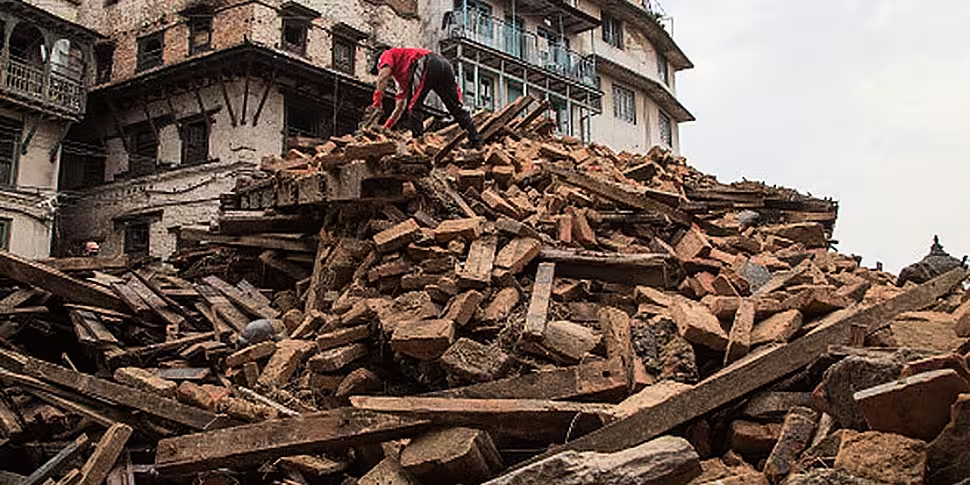The Department of Foreign Affairs says it has yet to make contact with four Irish people in Nepal.
It says that most of the 150 Irish citizens believed to have been in Nepal are accounted for, with many have already on their way home.
"As of this morning there are now four citizens on the Department's list with whom contact has yet to be made. Some of these people may be in remote areas where communications would be sporadic at the best of times, or may not in fact have been in the area at the time, which means it is taking time to formally account for all Irish citizens. There are no suggestions at this stage of any Irish fatalities," Foreign Minister Charlie Flanagan said.
On Monday Mr Flanagan and Minister of State Seán Sherlock approved aid of up to €1m for the humanitarian response in Nepal.
Meanwhile more survivor stories are emerging from the earthquake zone.
A man who was pulled alive from rubble has told how he survived by drinking his own urine after being buried by the earthquake that killed more than 5,000 people.
Rishi Khanal (28) gave up all hope as his lips cracked and his nails turned white before he was extracted from the ruins of a collapsed hotel by a French-Nepali team in Kathmandu.
He spent three days trapped with dead bodies and is one of those recovering after Nepal's worst natural disaster for more than 80 years.
Mr Khanal, who will now undergo an operation to amputate his leg, said after being pulled out alive: "By yesterday I'd given up."
"My nails went all white and my lips cracked. I'd lost all hope … and I was sure no one was coming for me. I was certain I was going to die."
"I kept banging against the rubble and finally someone responded and came to help. I hadn't eaten or had anything to drink so I drank my own urine. It feels good. I am so thankful."
Those on board helicopters trying to reach some of the worst hit areas said entire hillsides had collapsed burying settlements.
A health official in Laprak, a village in Gorkha district - best known as the home of Gurkha soldiers - estimated that 1,600 of the 1,700 houses in the village had been razed.
Aid starts to reach remote areas
Aid has started to reach some of the remote regions but agencies warned that it will take time to get to those in the hardest-hit areas.
Some banks in Kathmandu have reopened, allowing people access to cash to pay for food and water that has risen steeply in price.
Frustration also boiled over at a spot where the Government had promised to lay on buses to allow people to get home to outlying regions.
AFP reported that riot police were sent in to try to contain the situation after people armed with sticks surged into the street, attacking other vehicles when the buses failed to appear.
Other protesters forced a truck carrying drinking water off the road and climbed on top of it, throwing the bottles into the crowd.
Hundreds of tourists, including about 100 Israelis, were reportedly stranded in Langtang in Rasuwa district, a popular trekking area north of Kathmandu hit by an avalanche on Tuesday.
Tensions between foreigners and Nepalis desperate for relief were starting to rise, rescuers said, with fights breaking out over food and places on helicopters.
Nepal's government has acknowledged it has been overwhelmed and Foreign Secretary Shanker Das Bairagi continued to appeal for help despite appearing to contradict an earlier statement.









